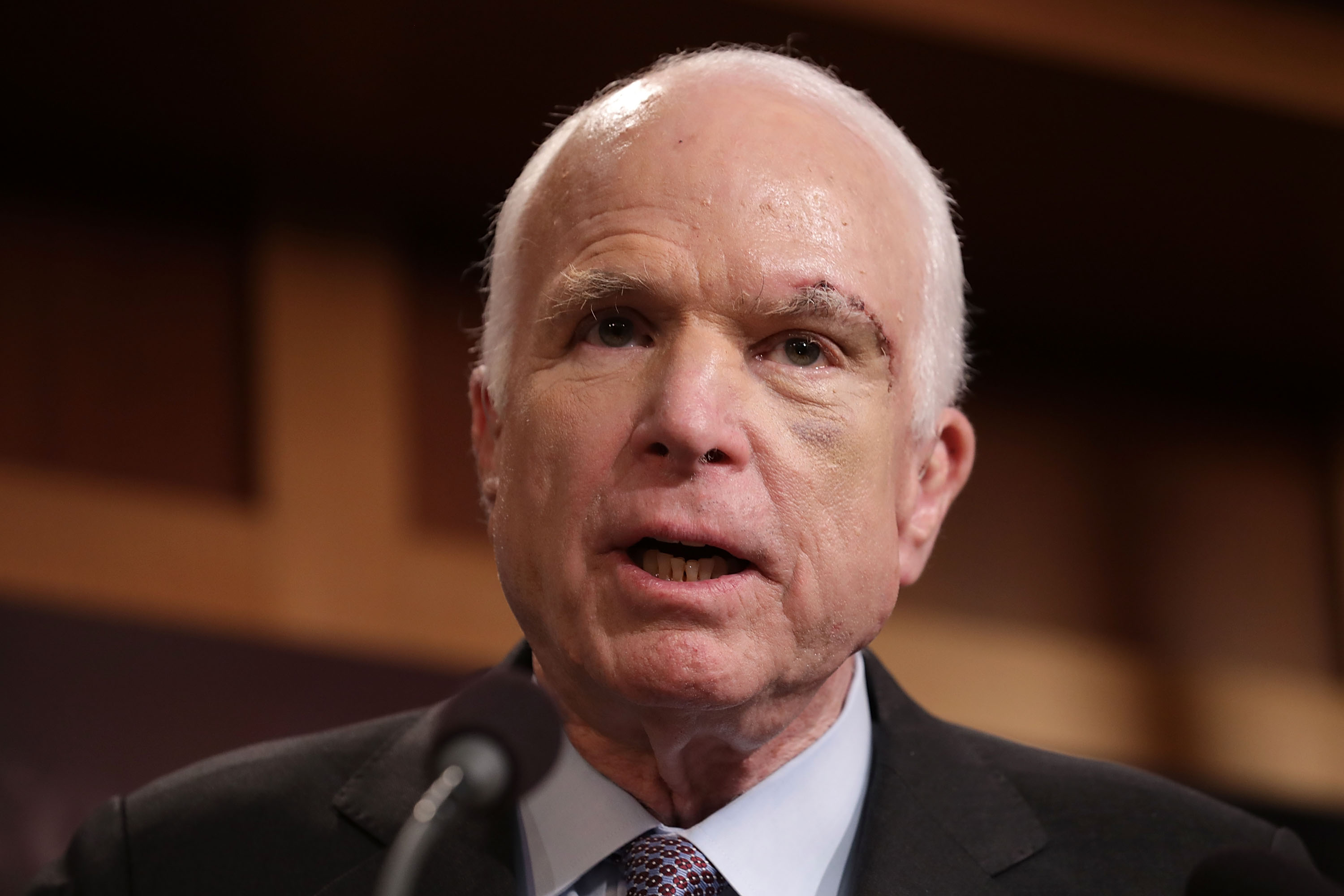Could John McCain kill the Republican health-care bill again?


A free daily email with the biggest news stories of the day – and the best features from TheWeek.com
You are now subscribed
Your newsletter sign-up was successful
Sen. John McCain (R-Ariz.) stunned his colleagues in the Senate when he torpedoed the Republican health-care bill with a tie-breaking no vote in July. With the GOP prepared to send its latest iteration of the health-care bill to the floor sometime next week, McCain is now poised to potentially make or break the legislation yet again.
Republicans have a Sept. 30 deadline for passing a health-care bill with only 50 votes. The Congressional Budget Office won't have its analysis on how much the bill would affect coverage or its costs for consumers until October. Additionally, the hearing on the bill will be before the Senate Homeland Security and Government Affairs committee, which "does not have primary jurisdiction over health care, making a formal markup of the bill impossible," Politico writes.
Despite the bill's co-sponsor, Sen. Lindsey Graham (R-S.C.), being McCain's close friend, McCain has stressed to Politico that he is dissatisfied with how his party is pushing the bill. "Nothing has changed," he said Wednesday. "If [Senate Majority Leader Mitch] McConnell wants to put it on the floor, that's up to McConnell. I am the same as I was before. I want the regular order."
The Week
Escape your echo chamber. Get the facts behind the news, plus analysis from multiple perspectives.

Sign up for The Week's Free Newsletters
From our morning news briefing to a weekly Good News Newsletter, get the best of The Week delivered directly to your inbox.
From our morning news briefing to a weekly Good News Newsletter, get the best of The Week delivered directly to your inbox.
Asked to clarify if that means he is voting no, McCain replied: "That means I want the regular order. It means I want the regular order!"
Three GOP defections would kill the bill. Sens. Susan Collins (R-Maine) and Rand Paul (R-Ky.) are believed to be opposed to the bill. In addition to McCain, Sen. Lisa Murkowski (R-Alaska) is reportedly on the fence about the legislation.
A free daily email with the biggest news stories of the day – and the best features from TheWeek.com
Jeva Lange was the executive editor at TheWeek.com. She formerly served as The Week's deputy editor and culture critic. She is also a contributor to Screen Slate, and her writing has appeared in The New York Daily News, The Awl, Vice, and Gothamist, among other publications. Jeva lives in New York City. Follow her on Twitter.
-
 What is the endgame in the DHS shutdown?
What is the endgame in the DHS shutdown?Today’s Big Question Democrats want to rein in ICE’s immigration crackdown
-
 ‘Poor time management isn’t just an inconvenience’
‘Poor time management isn’t just an inconvenience’Instant Opinion Opinion, comment and editorials of the day
-
 Bad Bunny’s Super Bowl: A win for unity
Bad Bunny’s Super Bowl: A win for unityFeature The global superstar's halftime show was a celebration for everyone to enjoy
-
 Trump HHS slashes advised child vaccinations
Trump HHS slashes advised child vaccinationsSpeed Read In a widely condemned move, the CDC will now recommend that children get vaccinated against 11 communicable diseases, not 17
-
 FDA OKs generic abortion pill, riling the right
FDA OKs generic abortion pill, riling the rightSpeed Read The drug in question is a generic version of mifepristone, used to carry out two-thirds of US abortions
-
 RFK Jr. vaccine panel advises restricting MMRV shot
RFK Jr. vaccine panel advises restricting MMRV shotSpeed Read The committee voted to restrict access to a childhood vaccine against chickenpox
-
 Texas declares end to measles outbreak
Texas declares end to measles outbreakSpeed Read The vaccine-preventable disease is still spreading in neighboring states, Mexico and Canada
-
 RFK Jr. shuts down mRNA vaccine funding at agency
RFK Jr. shuts down mRNA vaccine funding at agencySpeed Read The decision canceled or modified 22 projects, primarily for work on vaccines and therapeutics for respiratory viruses
-
 Measles cases surge to 33-year high
Measles cases surge to 33-year highSpeed Read The infection was declared eliminated from the US in 2000 but has seen a resurgence amid vaccine hesitancy
-
 Kennedy's vaccine panel signals skepticism, change
Kennedy's vaccine panel signals skepticism, changeSpeed Read RFK Jr.'s new vaccine advisory board intends to make changes to the decades-old US immunization system
-
 Kennedy ousts entire CDC vaccine advisory panel
Kennedy ousts entire CDC vaccine advisory panelspeed read Health Secretary RFK Jr. is a longtime anti-vaccine activist who has criticized the panel of experts
